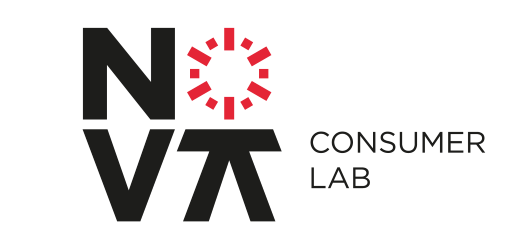Written by Yasmin Waetge (version in Portuguese here). Translated by Gabriela Santos.
The NOVA Consumer Lab resumes its activities after a short break with a renewed spirit to discuss and analyze the latest Consumer Law news. Today we bring up a brief analysis of the recently approved Technological Free Zones, considered a major step towards the promotion of foreign investment and national development.
Currently, the ever-increasing pace of technological innovation development requires governments to actively seek to understand the risks associated with this reality while setting out appropriate policies and guidelines to reap its benefits and protect consumers. Despite the legislative efforts, the fact is that the regulatory gap between reality and legal prescriptions has caused society, businesses, markets and even States to develop what some authors refer to as ‘regulatory uncertainty’ or ‘regulatory fear’.[1]
In this context, as well as a consumer protection measure, law operators have progressively witnessed the expansion of ‘Regulatory Sandbox’ as an alternative system for the current challenge of adapting this ‘new’ market regulation to the innovations that arise daily. Integrated in this environment, in a regulatory dialectic, businesses may enjoy a broad interaction with regulators for the controlled development of services and products. Thus, at a subsequent time and in a more secure conjecture, regulatory authorities will be able to decide “if-”, “how-” and “when-” to grant permanent licenses for the entrance and operation of such companies in the consumer market.
In a more integrative and comprehensive content-based approach, since 2020 the Portuguese government has been discussing the groundwork of the so-called ‘Technological Free Zones’ (ZLTs). In generic terms, this environment aims to be a general and cross-sector structure for the experimentation of innovative technologies. In other words, it would be a representation that corresponds to the ‘regulatory sandbox’ concept.
Initially, through Resolution of the Council of Ministers no. 29/2020[2], Portugal acknowledged its intention to establish a ‘common legal framework for demonstration and testing activities, in a real environment, of innovative technologies or solutions’, regardless of the sector. This feature of the Portuguese system sets it apart from the experiences of other countries that have resorted to this model to facilitate innovation in the economic realm, financial and insurance regulation.
More recently, the Portuguese government approved and published in the Official Gazette of Portugal the legal framework for Technological Free Zones (ZLTs), laid down in Decree-Law no. 67/2021[3] of July 30, 2021, which establishes its regulatory regime and defines the governance model for promoting technology-based innovation through the creation of these zones.
The Decree-Law contains 4 chapters and 16 articles, many of which implemented by numerous subparagraphs. Notwithstanding some delay, the regulation’s enactment responds to the global trend of promoting innovation and increasing the transfer of scientific and technological knowledge in the economy. In addition, Portugal envisions in the creation of Technological Free Zones the possibility to enhance its attractiveness for innovation projects and foreign investment related to emerging technologies to the national market.
Aware of the emergence of new stakeholders in the global economy and trying to catch up on its oversight of the sector over the last few years, in comparison to the rest of the European Union, Portugal also announced in 2020 a set of measures to assist more than 2,500 startups based in the country to help them overcome the consequences of the COVID-19 pandemic. The businesses support package amounts to more than 25 million euros, with an average of 10,000 euros of financial aid for each startup.[4]
For instance, it is worth reminding that to a large extent it was precisely in the wake of the UK Financial Authority’s exquisite creation of a ‘regulatory sandbox’ in 2015 that Revolut emerged, now one of Europe’s most valuable FinTech.
Thus, despite some well-deserved criticism, one cannot disregard the legislative efforts made, since, placed in a harmonized environment, and with the already consolidated presence of innovation hubs, the implementation of Technological Free Zones aims at mitigating regulatory entrance barriers to different economic sectors, reducing uncertainties and, above all, boosting innovation in Portugal. We look forward to sharing more analysis and news on this subject soon.
[1] See QUAN, Dan (2020) “A few thoughts on regulatory sandboxes”, Technical report, Stanford PACS, Stanford University.
[2] Resolution of the Council of Ministers No. 29/2020 – General principles for the creation and regulation of Technological Free Zones. Available at: https://data.dre.pt/eli/resolconsmin/29/2020/04/21/p/dre.
[3] Decree-Law No. 67/2021 – Regime and governance model for the promotion of technology-based innovation through the creation of Technological Free Zones. p. 29-37. Available at: https://data.dre.pt/eli/dec-lei/67/2021/07/30/p/dre.
[4] See “Novas medidas de apoio ao ecossistema de empreendedorismo no valor de 25 milhões de euros”. Comunicados da República Portuguesa. April 21, 2021. Available at: https://www.portugal.gov.pt/pt/gc22/comunicacao/comunicado?i=novas-medidas-de-apoio-ao-ecossistema-de-empreendedorismo-no-valor-de-25-milhoes-de-euros
